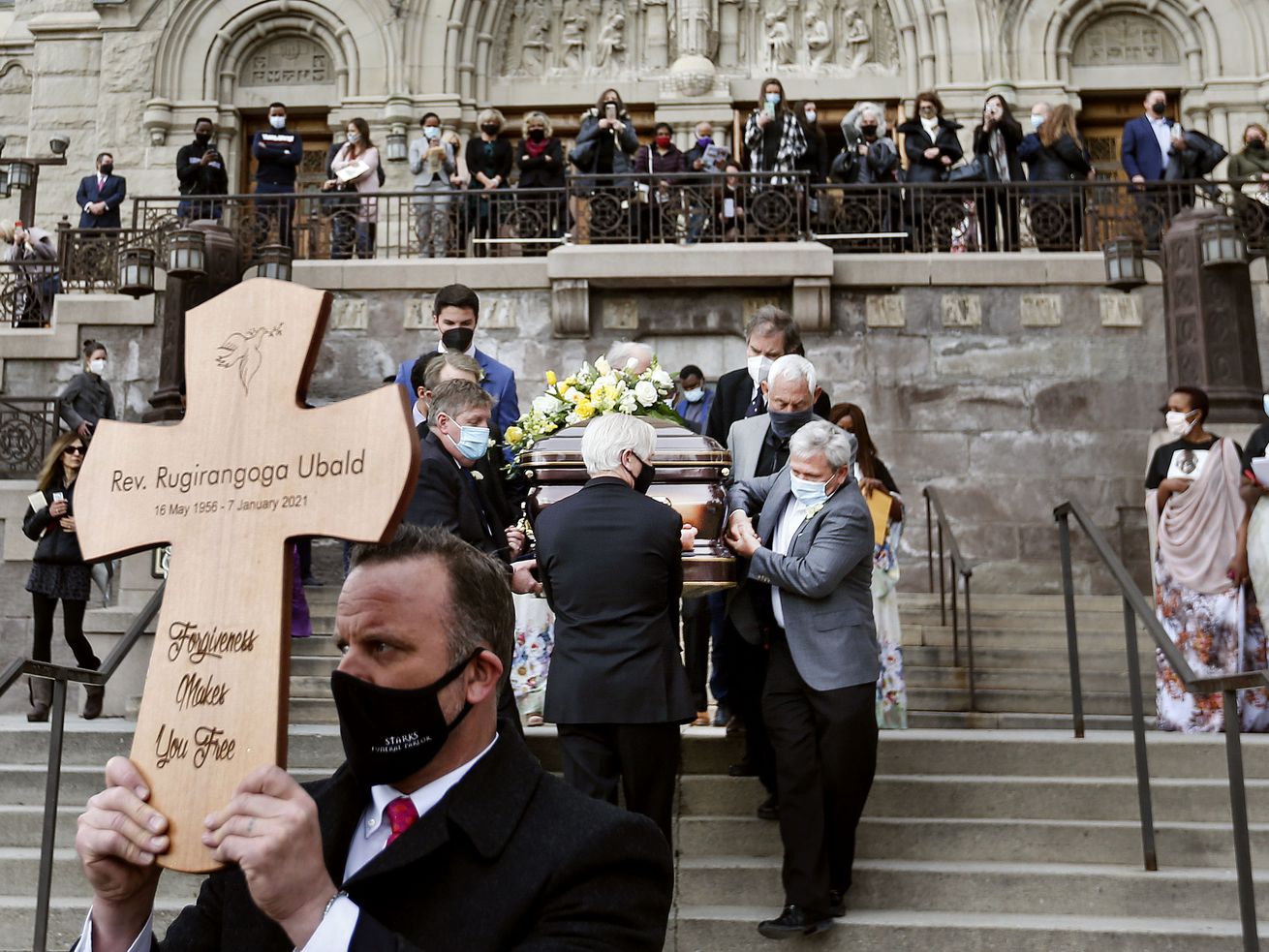
The world’s death toll from COVID-19 topped 5 million on Monday, a “heartbreaking” milestone that a Utah woman who lost her father last year to the virus believes will be largely ignored by people eager to put the pandemic behind them.
“I don’t know if it’s that they’re not paying attention or, unless they’ve been affected like our family has, I don’t know that they really care,” said Kortnie Aldous, of Holladay, tearfully recalling the family saying their goodbyes over the phone to her hospitalized 74-year-old father, Ken Kirkman, in May 2020,
Both her parents ended up in the hospital with COVID-19, possibly due to a quick stop at a grocery store where some customers were not wearing masks, but only her father ended up on a ventilator. Kirkman, who still sold real estate and helped coach his grandson’s youth football team, died hours after his wife was sent home to recover.
“I would not want anyone to go through that. I’ve really had to try to have love in my heart, I don’t know how else to put that but love in my heart, for people who feel that way because it is so frustrating to me,” Aldous said. “It was very real.”
So are all the lives lost to the deadly virus, she said, something that seems lost on many.
“I mean, 5 million people is absolutely heartbreaking to me. It’s not just a number. That reflects a human being and a family that’s been devastated by this pandemic. I feel like people have moved on,” Aldous said. “Unless they’ve been affected by it, they’re just over it.”
The United States has been the hardest hit by the virus, with more than 745,000 lives lost since the pandemic began less than two years ago. Utah reached 3,000 deaths from the virus in mid-October, a number that grew to 3,237 Monday.
According to the Johns Hopkins University of Medicine COVID-19 tracker, which recorded the 5 million deaths from the virus, Salt Lake County has the 24th highest number of cases by county nationwide as of last Thursday, behind a list led by Los Angeles County in California, Maricopa County in Arizona, and Miami-Dade County in Florida.
On Sunday, the Unified Fire Authority in Salt Lake County, Utah’s largest fire department, said Capt. Merrill Bone died that evening due to complications with COVID-19. Bone, who retired in 2006 after 20 years with the Salt Lake City Fire Department, then joined Unified Fire, was 61 and hospitalized at the time of his death.
“Captain Bone has been a very influential member of the Fire Service not only to those in the Salt Lake Valley but nationally. Merrill’s legacy will live on in the lives of those he helped mentor in his 35 years of dedication to the service of others,” Unified Fire tweeted. “Captain Bone, although you may be gone you will never be forgotten.”
There were 29 new deaths from COVID-19 in Utah since Friday, the Utah Department of Health reported, and 3,179 new cases of the virus. The rolling seven-day average for positive tests is 1,506 as case counts appear to continue to be plateauing after a mid-September peak fueled by the highly contagious delta variant.
None of the numbers — not even a death toll that has reached 5 million people worldwide — seem to be having much impact on Utahns, said Chris Karpowitz, co-director of Brigham Young University’s Center for the Study of Elections and Democracy.
“I think many people have become numb to the numbers or are weary of the pandemic generally. That’s unfortunate because these numbers represent the lives of our fellow citizens,” Karpowitz said, adding that because the number of deaths is now so high, it may be beyond comprehension.
“Sometimes, when numbers get so large, it’s hard for people to fully grasp them. That’s true of things like that national debt, for example,” now measured in the trillions of dollars, he said. “There’s some of that, the limits of our capacity to fully take in the magnitude of the crisis that we have faced.”
The political science professor said had Utahns known at the start of the pandemic how deadly the coronavirus would be, most “would be appalled and would be shocked and would work incredibly hard to avoid that outcome. But I think at this point, many people have stopped paying attention.”
It’s going to take more than numbers to put COVID-19 back on the public’s radar so they can focus on ensuring they’re protecting themselves and others against the virus, including by getting vaccinated, he said. The federal government is expected to give final approval this week for children as young as 5 years old to get the shots.
Political and other leaders need to speak up more strongly to counter the criticism and conspiracy theories circulating about the coronavirus on social media, Karpowitz said, with a message that recognizes “the common interests that we share here in trying to reduce unnecessary illness and death.”
He said he’s surprised that Utahns aren’t rallying together to fight COVID-19.
“I’m totally shocked with where we’re at,” Karpowitz said, citing the strain on hospital intensive care units. “The state has rightly prided itself on its ability to find common solutions to pressing issues, and to work together. But the longer this goes on, the harder it is to rally people to a common cause.”
COVID-19 deaths have hit 5 million worldwide. But are Utahns now ‘numb to the numbers’?
Source: Gabriella Pinoys



0 Mga Komento